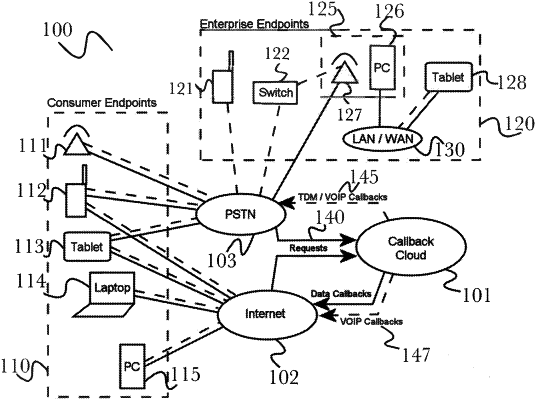| CPC H04M 3/5231 (2013.01) [H04L 67/306 (2013.01); H04M 3/5183 (2013.01)] | 6 Claims |

|
1. A system for intent-based active callback management using enhanced callback objects, comprising:
a callback manager comprising at least a processor, a memory, and a first plurality of programming instructions stored in the memory and operating on the processor, wherein the first plurality of programming instructions, when operating on the processor, cause the processor to:
receive a request for a callback to a callback recipient from a callback requester;
instantiate a first callback object;
obtain environmental context for callback requester and callback recipient;
prompt the callback requester for information pertaining to the callback request;
transcribe at least a portion of the request for a callback into a plurality of transcribed text, using speech-to-text processing;
associate a plurality of keywords with the first callback object, the keywords being based on the transcribed text; and
connect the two parties, when the two first and second called parties are online, and delete the first callback object.
|